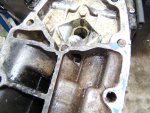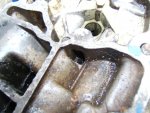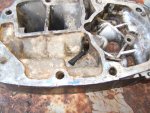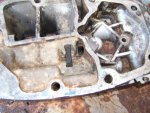GT1000000
Rear Admiral
- Joined
- Jul 13, 2011
- Messages
- 4,916
Looking to prevent a future problem...
Recently blew up my Merc, and before I install whatever new powerhead or engine, I would like to install a High Temperature Alarm and a water pressure gauge.
My question is, where do I begin to look for a Hi-temp alarm Kit, that I can wire in? And where would be the best place to locate the sensor ,say in an inline 6, Top cylinder, or Middle cylinder, Or bottom?
Thanks.
Recently blew up my Merc, and before I install whatever new powerhead or engine, I would like to install a High Temperature Alarm and a water pressure gauge.
My question is, where do I begin to look for a Hi-temp alarm Kit, that I can wire in? And where would be the best place to locate the sensor ,say in an inline 6, Top cylinder, or Middle cylinder, Or bottom?
Thanks.























